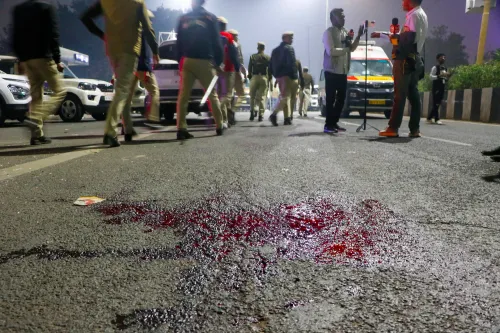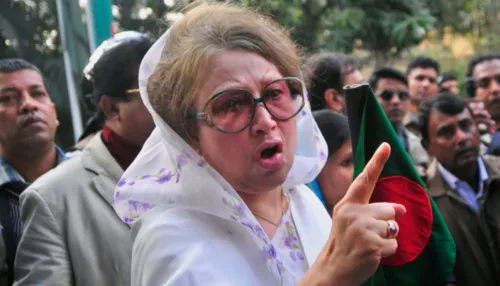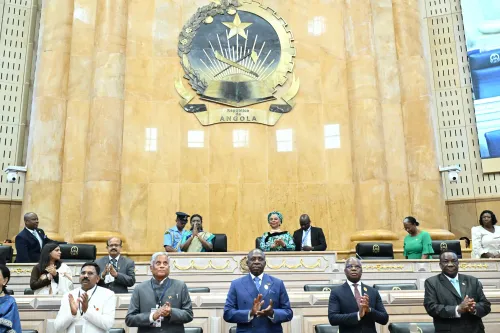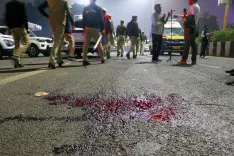Did Uruguay's Iconic Ex-President Jose Mujica Pass Away at 89?
Synopsis
Key Takeaways
- Jose Mujica was known for his humble lifestyle and dedication to social causes.
- He implemented significant reforms such as same-sex marriage and abortion legalization.
- Mujica's political career began with the Tupamaros guerrilla group.
- He endured torture and imprisonment during Uruguay’s military dictatorship.
- His legacy will continue to inspire future generations.
Montevideo, May 14 (NationPress) Former Uruguayan President Jose "Pepe" Mujica, revered as the "world's poorest President", has passed away at the age of 89 in Montevideo, as confirmed by President Yamandu Orsi.
Mujica revealed in January that his esophageal cancer, initially diagnosed in April 2024, had metastasized to his liver. He decided against further treatment.
"With profound sadness, we announce the loss of our comrade Pepe Mujica - a President, activist, leader, and mentor. We will miss you dearly, old friend. Thank you for everything you gave us and for your profound love for your people," Orsi wrote on social media.
In a conversation with the local weekly Busqueda, Mujica stated, "This is the end of the road for me," expressing his desire to be left in peace and wishing to be buried at his farm near Montevideo, according to Xinhua news agency.
Mujica, widely recognized as the “world’s poorest President” for donating the majority of his salary to charitable causes during his term from 2010 to 2015, had been battling advanced cancer.
In May 2024, doctors identified the spread of cancer from his esophagus to his liver. His wife, former senator and Vice President Lucía Topolansky, confirmed this week that he was receiving palliative care.
A prominent figure in progressive politics across Latin America, Mujica was instrumental in transforming Uruguay through landmark reforms such as the legalization of abortion, same-sex marriage, and recreational cannabis. Even post-presidency, he tirelessly advocated for Leftist causes until his health began to deteriorate.
His political journey commenced in the 1960s when he co-founded the Tupamaros, a Marxist-Leninist guerrilla organization known for robbing the wealthy to assist the underprivileged. The group later escalated to kidnappings, bombings, and assassinations. Mujica's life was defined by perilous adventures, surviving multiple gunshot wounds and participating in a dramatic mass prison escape.
After the Tupamaros collapsed in 1972, he was recaptured and endured the entirety of Uruguay’s military dictatorship from 1973 to 1985 in prison, where he faced torture and prolonged solitary confinement.
Upon his release, he transitioned to democratic politics, establishing the Movement of Popular Participation (MPP) in 1989, which evolved into the largest faction within the Broad Front, Uruguay’s Left-wing coalition.
He was elected to parliament in 1995 and became a senator in 2000. In 2005, he was appointed Minister of Agriculture in the nation’s inaugural leftist government. In 2010, he ascended to the presidency, serving a single five-year term in accordance with Uruguay's constitutional limitations.
Mujica, who did not have children, is survived by his wife and lifelong political partner, Lucía Topolansky.









